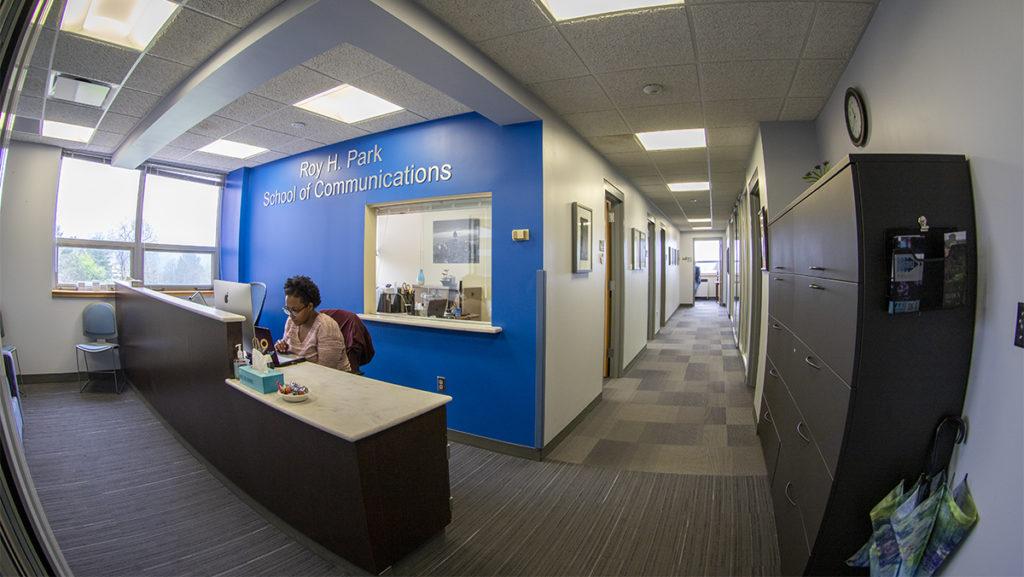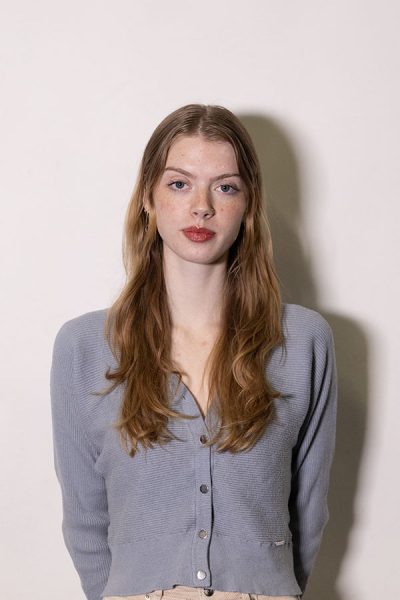Faculty, staff and students at Ithaca College attended open sessions between May 2 and 5 to speak with the four final candidates for dean of the Roy H. Park School of Communications.
The current interim dean is Jack Powers who assumed the position at the start of the 2020–21 academic year. Powers became interim dean after former dean Diane Gayeski stepped down from her position at the end of the 2019–20 academic year. There have been ongoing dean searches for the School of Music and the School of Business in addition to the Roy H. Park School of Communications. The searches for the Park School dean and the music school dean began in 2019 after Gayeski and Paulnack announced their intentions to step down. There were open sessions for candidates for both positions to interact with the campus community in March 2020. However, the searches were postponed until the 2021–22 academic year.
The candidates for the dean of the School of Business held open sessions the week prior, between April 25 and 28.
Each candidate for the Roy H. Park School of Communications held two, one-hour open sessions; one for faculty and one for staff and students. Attendees could go in person or virtually through Zoom.
The first candidate, Virginia McDermott, dean of the Nido R. Qubein School of Communication at High Point University, held her open sessions May 2. McDermott said she wanted to work on more effective advertising for the Roy H. Park School of Communications at Ithaca College. She highlighted that students create valuable media and products that can draw new students to the college.
“Everything [student work] is marketed, so part of my job is identifying what’s happening in the school of communication that needs wider recognition,” McDermott said.
In regard to questions about low morale and the impact of COVID-19 on the campus community, McDermott said that finding events like awards ceremonies to commend students for their work and coming together to celebrate is a great way to keep people motivated. She also said the timing of these events to keep the campus energy positive is essential.
“You can’t assume community is built by itself,” McDermott said. “I would say my short-term goal to change being here is to make people feel better about being here. The consistency of which people talk about morale is troublesome. And it deserves attention and deserves time.”
McDermott said that, while she may not be an expert in all of the skills taught in the Roy H. Park School of Communications, she does have a wealth of experience in managing a school.
“I’m actually not a journalist,” McDermott said. “I don’t know how to run a camera. But what I know how to do is support people who know how to do that, to provide them the resources, the time, the actual equipment they need and then just the emotional support to be able to do a good job. My job isn’t to teach that class. My job is to hire good people who can do that and provide them the resources to move ahead.”
The second candidate, Karen Loop, associate dean and professor at Columbia College Chicago, introduced herself to the campus community May 3. She is the executive producer for the movie “On the Basis of Sex” and has extensive experience in the film and production industry. She said a great way to keep alumni engaged with the college is through mentor programs like the one she built at Columbia College where all the students have an alum mentor them.
“I think alumni engagement is so important on so many levels, not only in terms of fundraising, but the opportunities it creates for students,” Loop said. “And whether you’re in the communications field, whether you’re in podcasting, the radio, or whether you’re in television, you need people to open the doors for you and allow room to do that.”
However, to questions about dissatisfaction with the college, divides between faculty and staff and keeping student media independent, Loop did not provide potential solutions or strategies.
“I think the low morale is the biggest obstacle because you got amazing equipment, you got amazing students, you have passionate people, but somehow, they’ve got to see a brighter future and know that it’s all going to be okay,” Loop said.
The third candidate, Paul Mihailidis, professor of civic media and journalism and assistant dean in the School of Communication at Emerson College, came to Park Hall at Ithaca College May 4.
He said he works to find new programs to challenge students and build the competencies needed to create something unique that will make students stand out. Mihailidis said the room for growth and new opportunity is one reason why he wants to work at the college.
“When you see schools that have a really strong infrastructure of practice and dynamic education opportunities, it’s been doing this for a while,” Mihailidis said. “The opportunity to come in and see how you can extend that or expand that or support that work or bring more resources to it. To me that’s a challenge that I’m increasingly interested in taking on.” Mihailidis said.
He also talked about developing a community where staff, faculty and students feel comfortable and like they have the support they need. Throughout the open session Mihailidis often brought up social justice and building community.
“Any successful community is only as strong as how the community members feel a part of it,” Mihailidis said. “The effort has to be made to create that community and I do see that as a dean’s core responsibility, and not just to make the effort to create it, but to sustain it and make sure that it’s part of the ecosystem.”
Amy Faulkner, senior associate dean of the Newhouse School of Public Communications at Syracuse University, introduced herself to faculty, staff and students May 5 as the fourth candidate for dean of the Roy H. Park School of Communications.
Falkner has worked at Syracuse University since 2004. Since April 2019, she has served as interim dean of the Newhouse School of Public Communications. Falkner participated in the initial Roy H. Park School of Communications dean search for Ithaca College in March 2020, which was postponed due to the COVID-19 pandemic.
Falkner said she plans to be highly engaged with both the Park School and the Ithaca community. Part of this engagement, Falkner said, would come from creating student and faculty councils to meet with her on a regular basis.
“I’m here because of students,” Falkner said. “And what’s best for students is always my number one question. And if you can’t answer that for me and you want something, then you’re not going to get very far. Because it’s got to be about what’s best for the students.”
Falkner said she plans to expand the Roy H. Park School of Communication’s online presence on social media, and that current students and staff are an integral part of promoting the Park School brand to prospective students.
“What’s the incentive to get here,” Falkner said. “Because I think once you get [prospective families] here, then you’re very good at closing the deal … And so that has to happen on both the prospective student level and prospective parent level.”









